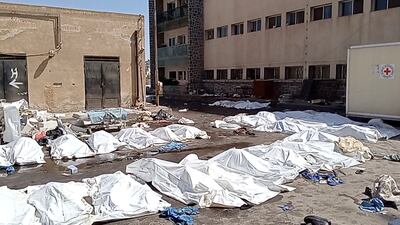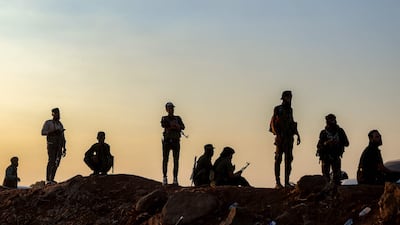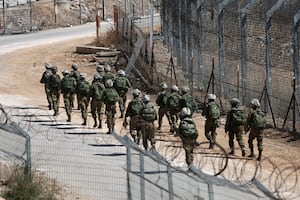The Syrian Defence Ministry has said it is aware of reports of “shocking violations” carried out by fighters wearing military fatigues in the Druze heartland of Sweida, and investigations have been launched into a week of deadly clashes.
Sectarian clashes intensified last week between the Druze and Bedouin tribes. The violence escalated when government troops were sent to the city. More than 300 people were killed in the fighting that also involved Israeli strikes.
Israel claims to be supporting the Druze, who form a significant minority in Israel but are often subjected to army conscription. Syria and Israel agreed to a ceasefire on Friday.
War monitors and witnesses accused forces affiliated to the government of carrying out executions in the city. Syria's Defence Minister Murhaf Abu Qasra said on Tuesday there would be “no tolerance” for perpetrators of human rights breaches in Sweida, even if they were committed by ministry forces.
A committee has been tasked to investigate the reports and to try to identify those who were wearing military uniforms and carrying out atrocities.
The head of the World Health Organisation, Tedros Adhanom Ghebreyesus, said on Wednesday the situation remained "extremely troubling" with Sweida's main hospital overwhelmed and short of supplies. He said the WHO was "working to verify reports of attacks on doctors and patients" during the fighting.

Separately, the Syrian Interior Ministry said it opened an investigation into reports of field executions committed by “unknown people” in Sweida.
“Such acts constitute serious crimes,” ministry representative Nour Al Din Al Baba said, stressing that the ministry was also working on identifying those involved.
Last week's violence in Sweida is only the latest episode of sectarian fighting that the new authorities in Damascus have been linked to.
A Syrian fact-finding committee said separately on Tuesday that 1,426 people had died in March in attacks on security forces and subsequent mass killings of Alawites, but concluded that commanders had not given orders for the revenge attacks.
US special envoy to Syria Tom Barrack said he had advised Syrian President Ahmad Al Shara to recalibrate his policies and embrace a more inclusive approach in the wake of the latest sectarian flare-up, or risk losing international support.
In an interview with Reuters in Beirut, Mr Barrack said the Syrian leader could “grow up as a president and say, 'the right thing for me to do is not to follow my theme, which isn't working so well'”.
Mr Al Shara, who previously led an Al Qaeda splinter group, came to power in Syria after guerrilla fighters he led brought down president Bashar Al Assad in December last year following more than 13 years of civil war.
While many of his fighters have roots in extremism, he has pledged to protect members of minorities. But that pledge has been challenged by mass killings of members of the Alawite sect – which Assad belonged to – and now by the latest violence involving the Druze.
Mr Barrack however rejected reports that Syrian security forces were responsible for the violations.
“The Syrian troops haven't gone into the city. These atrocities that are happening are not happening [at the hand of] the Syrian regime troops. They're not even in the city because they agreed with Israel that they would not go in,” he said.
Th US State Department confirmed the death of a US citizen last week in Sweida, adding that it was providing consular assistance to the family.


